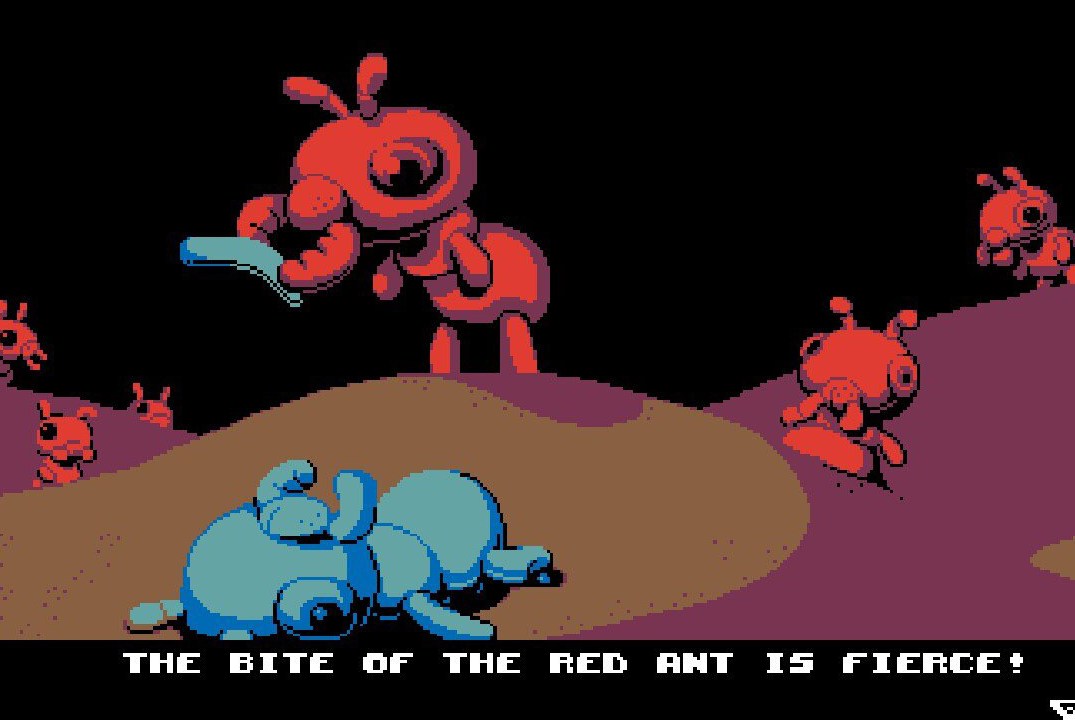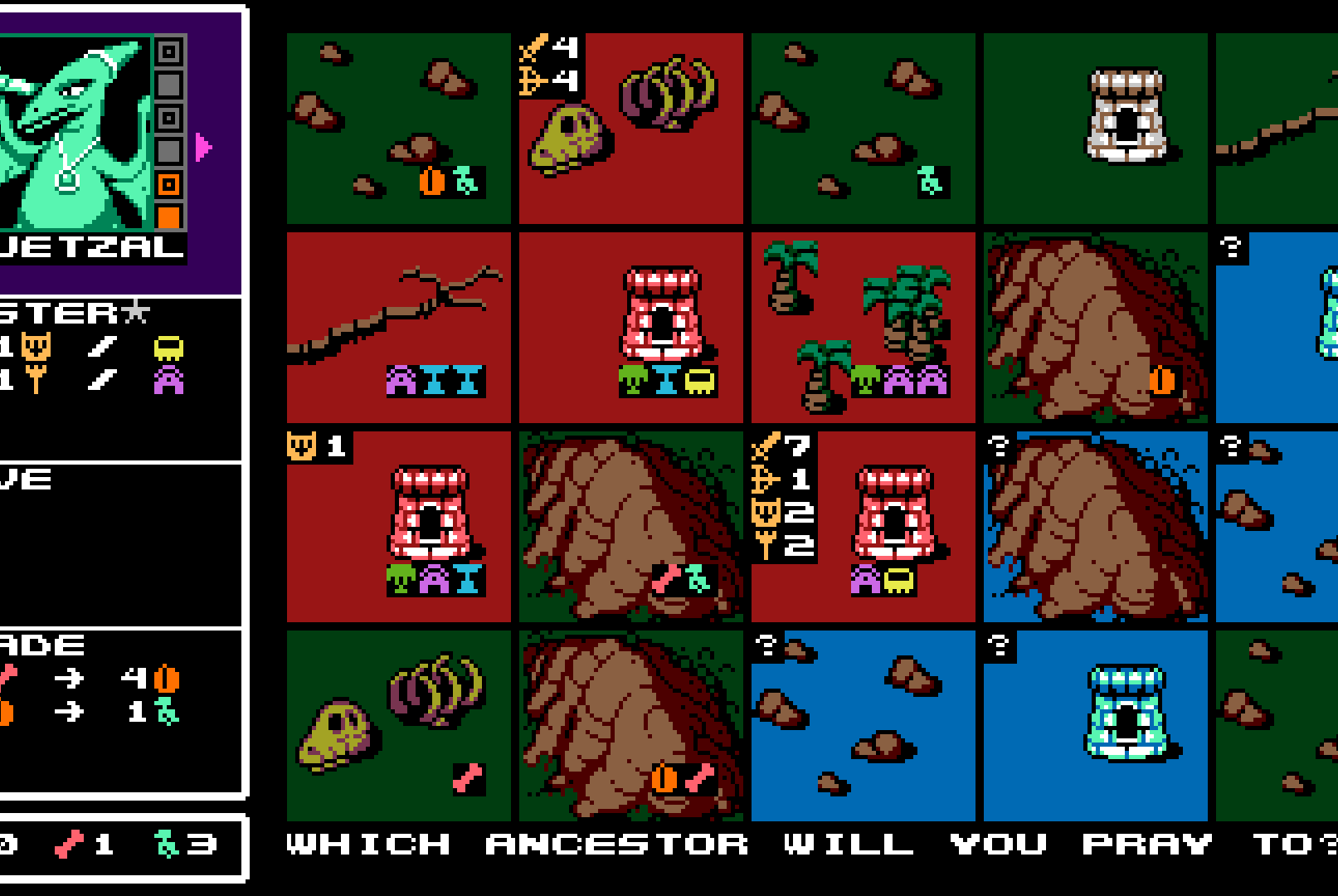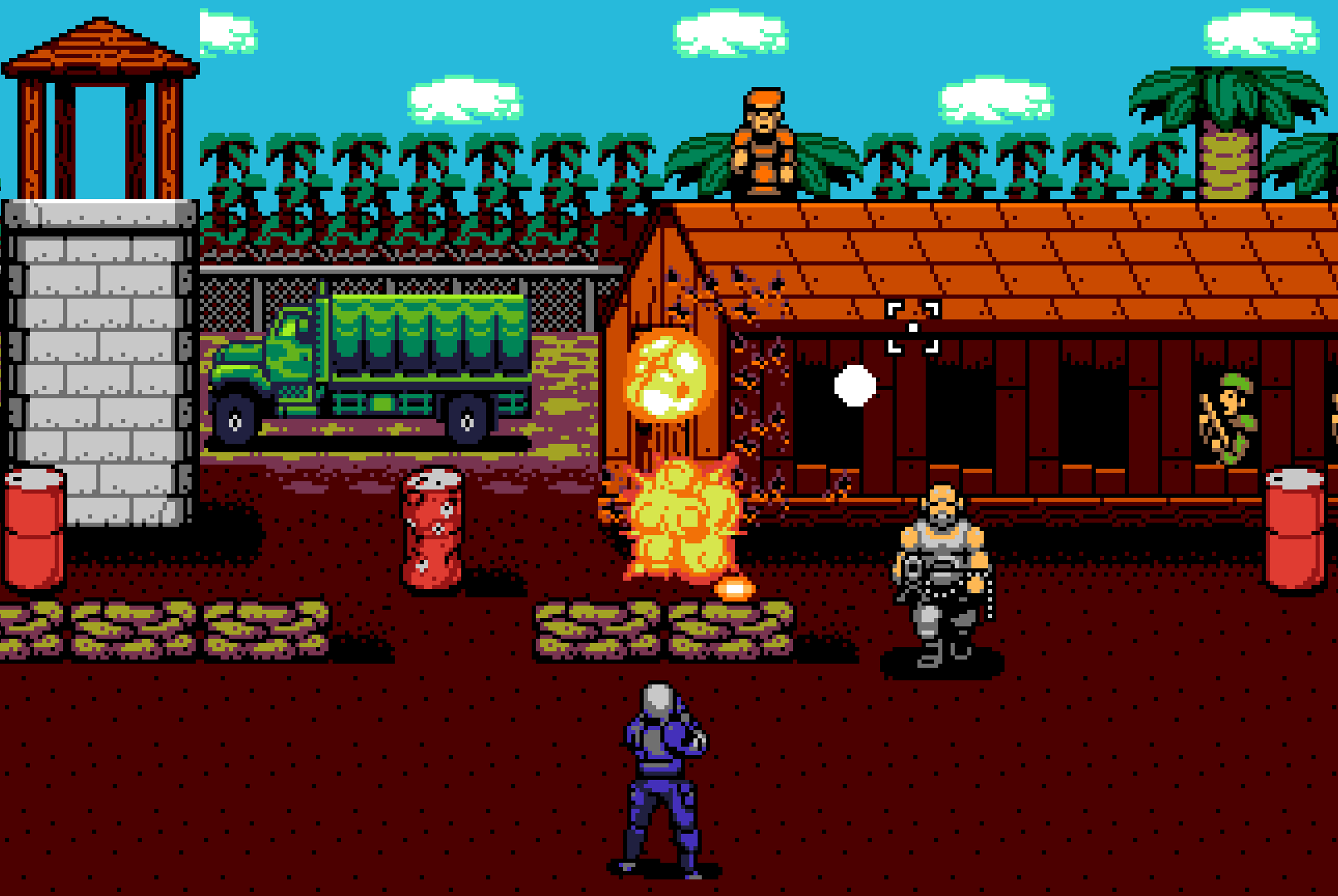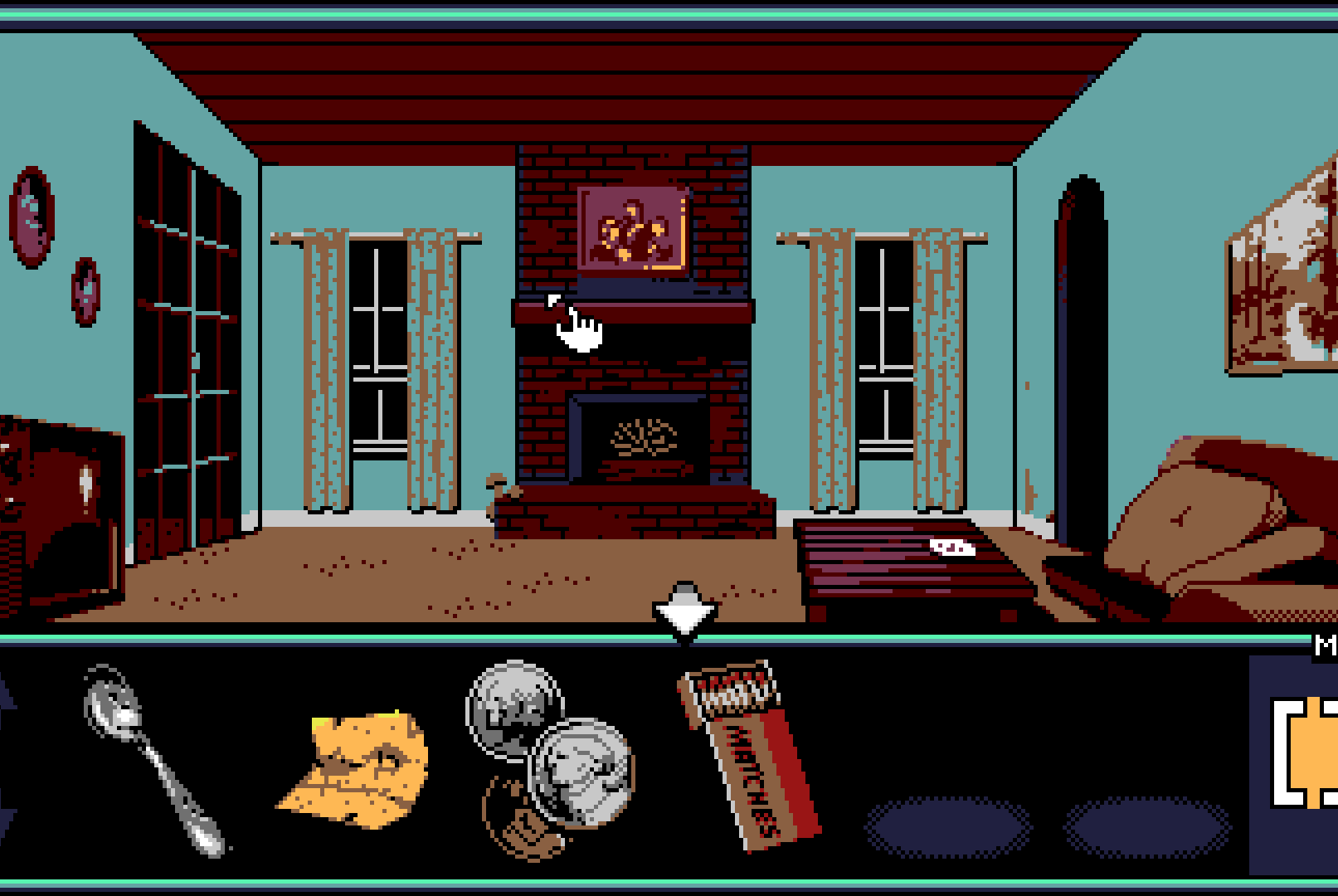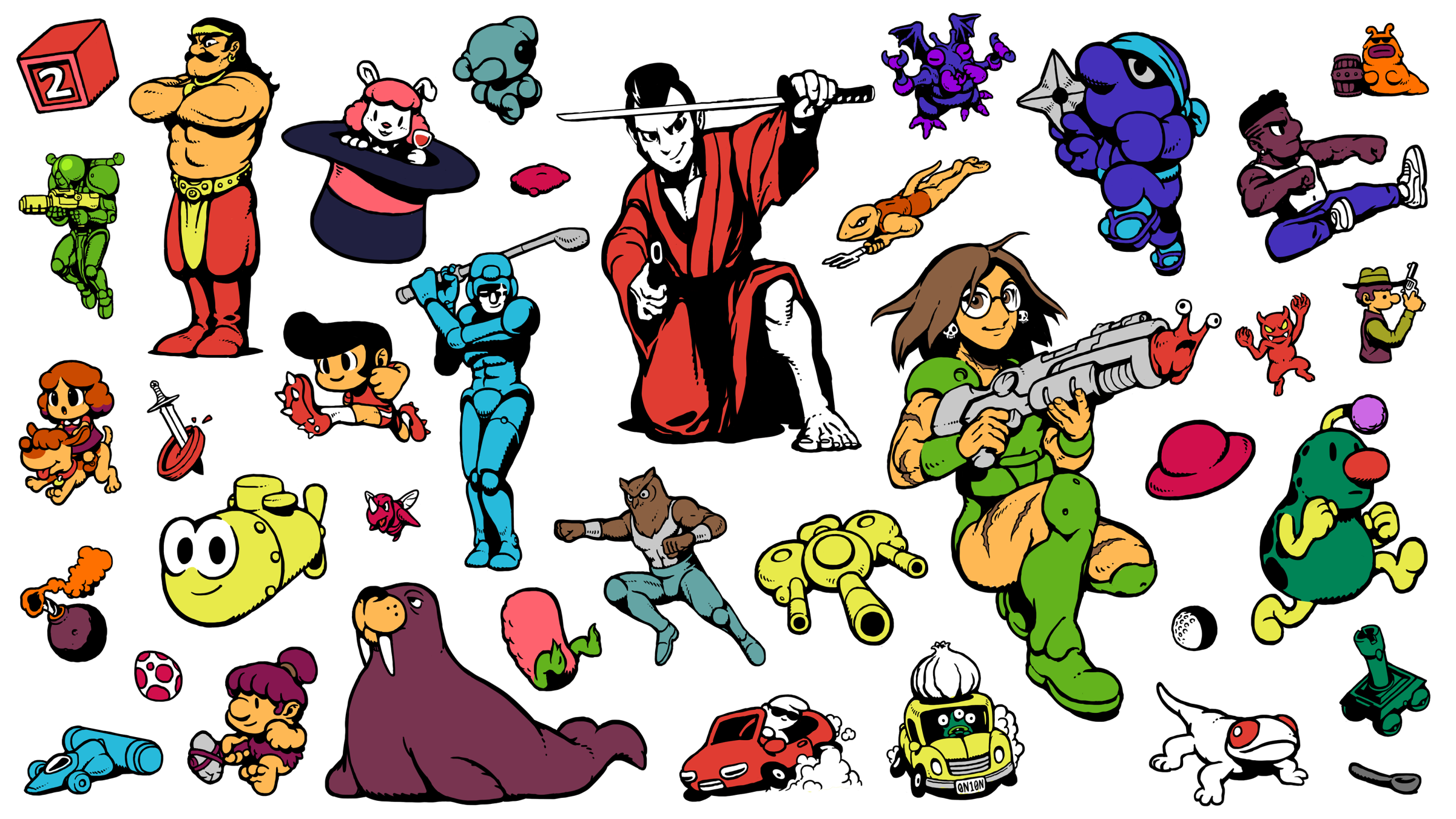UFO 50 was horrible to review, but incredible to play
The problem I had with judging UFO-50 is not the problem you will experience when you play it.
It bills itself as an anthology of all 50 games developed by UFO Soft, a fictional game studio active from 1982 to 1989. UFO-50 is all about breadth and variety. The player is presented with the full catalogue of games from the start, and can play them in any order and for any length of time. Note that these are not WarioWare-style microgames. These are full-fledged titles of varying length, ranging from arcade-style side-scrollers to full-blown dungeon crawlers, all presented in the 8-bit style of the imaginary “LX” console on which they were first released.
I have chosen to play the games in chronological order, which is the standard way they are presented. In order to be able to judge the game, I felt it was important to play all 50, partly because it was important to at least sample the entirety of what is presented here, but also because, as I soon realized, the unique joy of UFO-50 comes not just from playing the individual games, but from seeing ideas develop across the fictional company’s entire oeuvre. Recurring mechanics, characters, and themes change and deepen over time. As such, I tried to play enough of each game to comment on it, moving on once I had a sense of its design and scope, with the ultimate goal of finishing my review in a timely manner.
Then I came to Bushido balland, well, I kind of forgot all about that.
Each game in the collection comes with a short description to give you an idea of what you’re playing. Here’s what it said Bushido ball: “It’s the annual Bushido Ball tournament. Choose from 6 fighters and compete to win!” A sports game, I thought. Got it. Bushido ball wasn’t the first sports-themed game, chronologically speaking. That honor would go to Kick clubreleased a year earlier. But Bushido ballWhat I would roughly call samurai tennis was so much fun that I accidentally played it for an hour and a half straight, losing sight of my goal of playing all 50 titles in just the 14th game.
In Bushido ballYou volley a ball back and forth, slice it with your sword or, more clumsily and ineffectively, block it with your body. You build up a special meter with each successful slice of the ball, allowing you to use two special moves unique to your chosen character. The game progresses in tournament style, with increasing difficulty as the volleys get faster and faster, requiring you to discover that you could have actually been lobbing the ball the whole time (hold the joystick back while pressing slice), and discover the ways in which different moves can counter backspin and power shots. It’s a total audiovisual treat and, along with the single-player mode, is one of 25 titles in the anthology to feature local multiplayer. If you’ve got a friend, a couch and fond memories of playing titles like Tower Fall or Nidhogg, Bushido ball will only make UFO-50 a must-play title in a year full of must-play titles.
And that is only one game out of 50.
The way I played UFO-50 is not how you should play UFO-50. When a game like Bushido ball piques your interest, you can and should lose yourself in its depths. That’s the fun of this title, period. Whether it’s the deck-building party-throwing simulator, the idle game that generates resources while you play the other games, or the three sequels to a game starring a cute red spaceship, UFO-50 has an RPG-worthy amount of content within it — including a true turn-based RPG. As I looked through title after title, there were plenty more that I wanted to get lost in, including a Pikmin-esque game with killer ants, a clever puzzle game involving a color-changing chameleon, and an adventure game where you play as a sentient golf ball. UFO-50 has more ideas than any game I’ve played in decades, and the magic is that they’re all well executed. UFO Soft may not be a real developer, but by the time you’re done with UFO-50then you would wish it were so.
Which brings me back to the metafictional element of the game. The opening credits establish that Mossmouth and friends (game developers Derek Yu, Jon Perry, Eirik Suhrke, Paul Hubans, Ojiro Fumoto, and Tyriq Plummer, to be specific) discovered a lost LX console in a storage facility in 2018, and were trying to salvage the games and make them run on a modern PC. To quote LCD Soundsystem: UFO 50 trades “borrowed nostalgia for the forgotten 80s,” as a love letter to 8-bit games and consoles from the 80s. But it’s also a beautiful reflection on game development itself. Each title is worth it on its own, but it’s the way they build on each other that makes UFO-50 fly.
Take the first game in the anthology, Barbuta. It’s not always fun, to my taste. It’s a brutal Metroid-like with one-hit deaths and only six continues to complete the entire game, and I quickly got over it. But without Barbutathere would be no Cause of deathwhere every time you die you can turn your body into a ledge or rock, making your next attempt even easier, an idea that is further developed in Death 2which turns that concept into a Metroidvania where you’re given 99 sacrificial characters — warriors, archers, ninjas, and more — to complete the game, which resets every time you start it. You can also follow along as the original little clock sets the course for the extended sequel, but takes a strange turn in Campanella 3the penultimate game from the fictional studio. If we take the metafictional conceit even further, you could imagine a critic thinking that 3 missed the things that 1 And 2 is unique, and that, as fun as it is in itself, you could argue that it’s not worth it little clock name.
All in all, whether you’re following the histories of individual fictional developers or just the ideas that run through UFO Soft’s very first games to its very latest, there’s enough going on here to write a dissertation on. You can and will get lost in this title and the world it depicts. This is a feast of a game, served up buffet-style.
I highly recommend it UFO-50 on a gameplay level alone. I’d say with confidence that if you can handle the high difficulty and occasionally stupid objectives, you’ll have a game, or two, or 30 in UFO-50 that resonates with you. But I also recommend UFO-50 as a metafictional narrative argument that we all benefit when the same people are given the opportunity to create multiple titles together. In an industry plagued by layoffs and closures, UFO-50 imagines a group of people who have made 50 games together, building on successes and taking wild swings throughout their careers. Sure, it’s fiction, but it’s hopeful.
Unparalleled in size and execution, UFO-50 is a game about creativity and perseverance that rewards every minute you spend playing it. You’ll wish there were 50 more to play.
UFO-50 will be released on Windows PC on September 18. The game was reviewed on PC using a pre-release download code provided by Mossmouth. Vox Media has affiliate partnerships. These do not influence editorial content, though Vox Media may earn commissions for products purchased via affiliate links. You can find additional information about Polygon’s ethics policy here.

